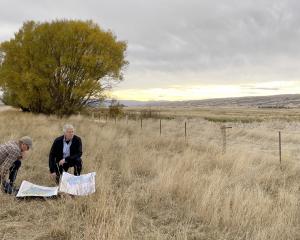
Wood also confirmed that exemption to the median wage threshold has been extended for another year to support the wider tourism and hospitality sector.
Wood said labour shortages continued to be a "persistent ongoing symptom" as the world recovers from the Covid-19 pandemic.
"We are listening closely to the concerns of the hospitality and tourism sectors, and working with them to take practical steps to support them with these challenges where we can, as businesses work towards more productive and resilient ways of operating," Wood said.
"We agree with the hospitality industry that removing the qualification requirement for chefs to be hired through an Accredited Employer Work Visa will allow those top-rated chefs who have trained at the coal face to come to NZ."
The changes will take effect from Tuesday, October 18.
Wood said the requirement for chefs to hold a NZ level 4 certificate of cookery or equivalent was initially introduced to reduce risks of wage and job inflation.
"We have heard the industry's concerns that this requirement was limiting their options to recruit chefs who do not hold formal qualifications, including some highly skilled or experienced chefs, at a time when labour market conditions are tight," he said.

Officials will be working closely with the industry to develop a system within the next 18 months for identifying and assessing chefs who do not hold formal qualifications.
The Government is extending its temporary median wage exception to allow many tourism and hospitality businesses to continue hiring migrants on a lower wage threshold.
"We recognise these sectors have been hit hard by the pandemic and are still recovering from the impacts of ongoing disruption to global travel. To help the industry as it continues to rebuild, Cabinet has decided to extend the transition towards the full median wage for an additional year from 2023 to 2024", Wood said.
"This will help these sectors manage the short-term impacts they are facing, and ensure a clear path to continue taking the important steps towards paying the median wage in the medium-term."
The current wage threshold will be in place until the new median wage is incorporated in February 2023.
The minister confirmed that the new median wage of $29.66 per hour will be adopted into the immigration system on February 27 next year.
All wage thresholds indexed to the median wage, such as sector agreements will also be updated, Wood said.
Employers will be able to pay migrant workers 95 percent of the median wage or $28.18 per hour in April 2023, then to 100 percent of the median wage in April 2024.
Marcin and Jackie Kulak, owners of Mekong Baby in Ponsonby are among hundreds of restaurants struggling to hire chefs since the start of the pandemic.
In August, Restaurant Association CEO Marisa Bidois told The New Zealand Herald members were frustrated with the accreditation scheme and a major issue that had been raised was about the qualification being a requirement for chefs with experience not being considered as a marker of skill.
"We see chefs from Michelin starred restaurants being turned down if they do not have a qualification," Bidois said at the time.
- By Lincoln Tan












